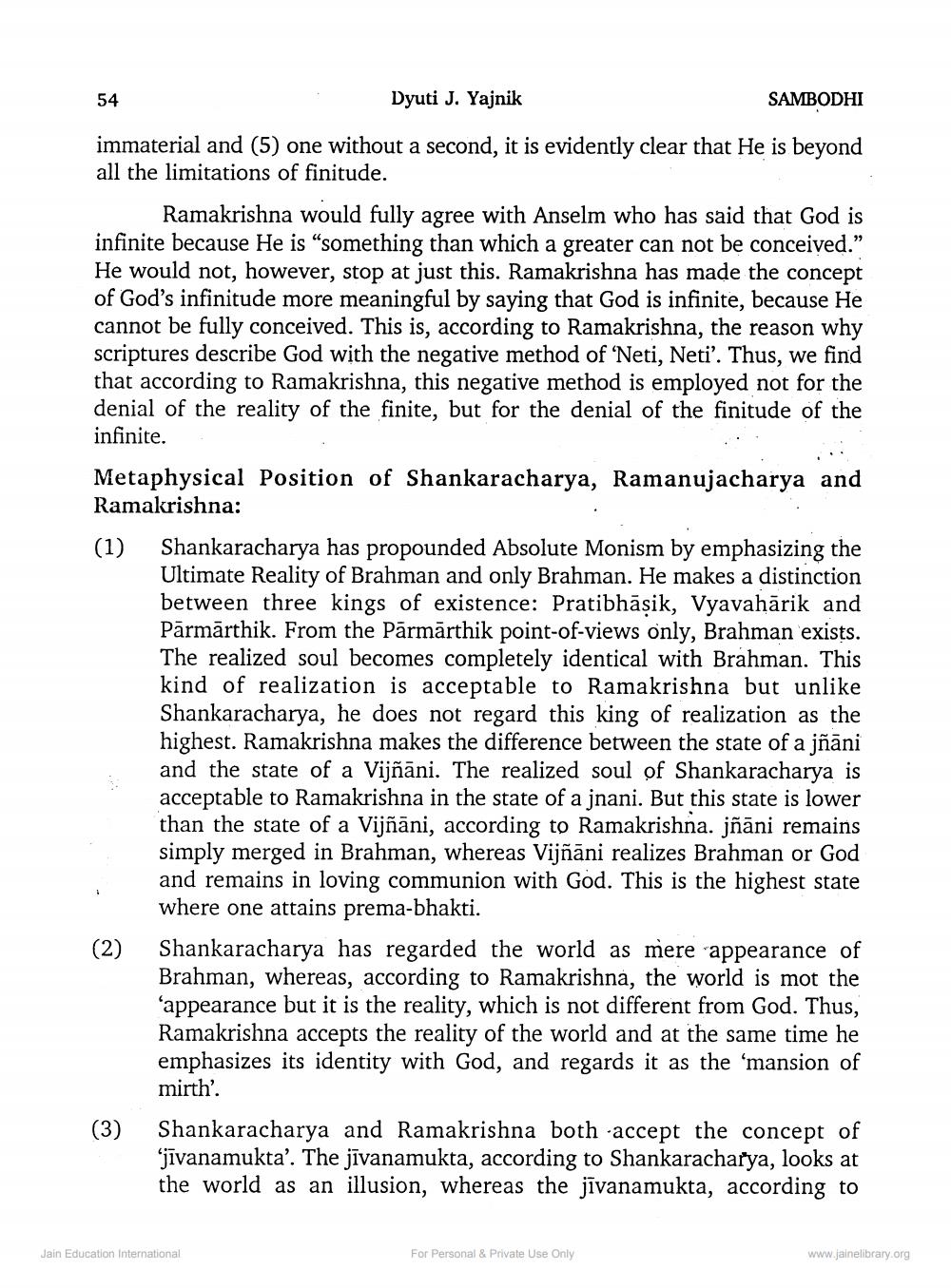________________
54
Dyuti J. Yajnik
SAMBODHI
immaterial and (5) one without a second, it is evidently clear that He is beyond all the limitations of finitude.
Ramakrishna would fully agree with Anselm who has said that God is infinite because He is "something than which a greater can not be conceived." He would not, however, stop at just this. Ramakrishna has made the concept of God's infinitude more meaningful by saying that God is infinite, because He cannot be fully conceived. This is, according to Ramakrishna, the reason why scriptures describe God with the negative method of ‘Neti, Neti'. Thus, we find that according to Ramakrishna, this negative method is employed not for the denial of the reality of the finite, but for the denial of the finitude of the infinite. Metaphysical Position of Shankaracharya, Ramanujacharya and Ramakrishna:
(1)
Shankaracharya has propounded Absolute Monism by emphasizing the Ultimate Reality of Brahman and only Brahman. He makes a distinction between three kings of existence: Pratibhāsik, Vyavahārik and Pārmārthik. From the Pārmārthik point-of-views only, Brahman exists The realized soul becomes completely identical with Brahman. This kind of realization is acceptable to Ramakrishna but unlike Shankaracharya, he does not regard this king of realization as the highest. Ramakrishna makes the difference between the state of a jñāni and the state of a Vijñāni. The realized soul of Shankaracharya is acceptable to Ramakrishna in the state of a jnani. But this state is lower than the state of a Vijñāni, according to Ramakrishna. jñāni remains simply merged in Brahman, whereas Vijñāni realizes Brahman or God and remains in loving communion with God. This is the highest state where one attains prema-bhakti.
(2)
Shankaracharya has regarded the world as mere appearance of Brahman, whereas, according to Ramakrishna, the world is mot the 'appearance but it is the reality, which is not different from God. Thus, Ramakrishna accepts the reality of the world and at the same time he emphasizes its identity with God, and regards it as the 'mansion of mirth'.
(3)
Shankaracharya and Ramakrishna both accept the concept of jīvanamukta'. The jīvanamukta, according to Shankaracharya, looks at the world as an illusion, whereas the jīvanamukta, according to
Jain Education International
For Personal & Private Use Only
www.jainelibrary.org




